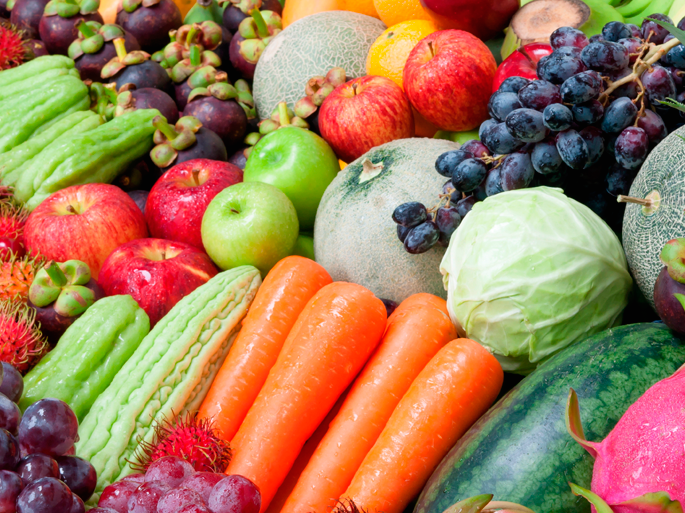|
Substance
|
Foods
|
Potential Benefits
|
|
Monounsaturated
Fatty Acids
|
Nuts, olives, avocados, olive oil.
|
Prevention of cardiovascular diseases.
|
|
Polyunsaturated
|
Hazelnuts and flaxseed.
|
Contributes to the maintenance of mental and visual functions.
|
|
Fatty Acids Omega-3
|
Cold water fish with high fat content, salmon, tuna, cardiovascular, prevention
fish oil, foods enriched with omega-3.
|
Prevention of cardiovascular diseases, prevention of autoimmune and inflammatory diseases.
|
|
Conjugated Linoleic Acid
|
Beef, lamb and certain cheeses.
|
Contributes to the healthy maintenance of the immunological system.
|
|
Tryptophan, Tyramine, Glutamine, Cysteine
|
Meat, fish, eggs, vegetables, dietary supplements and products for athletes.
|
Stimulates the immunological function.
|
|
Beta-carotene
|
Carrots, mangos.
|
Strengthens the antioxidant defenses of cells.
|
|
Anthocyanins
|
Cherries, raspberries, grapes, fruits in general.
|
Prevention of cancer and cardiovascular diseases.
|
|
Flavonoids
|
Citrus fruits, cabbage, broccoli, onions, apples, grapes, raspberries, green tea, soy*.
|
Strengthens antioxidant defenses, action on the forming of free radicals and reduction of LDL cholesterol levels,
* relieves hot flashes in menopausal women.
|
|
Lutein and Xanthine
|
Pequi, corn, kale, citrus, eggs, chard, spinach.
|
Protection against muscular degeneration, maintenance of good vision
|
|
Lycopene
|
Tomatoes, guava, watermelon.
|
Protection against cancer, especially prostate, reduction of the risk of cardiovascular diseases; antioxidant activity.
|
|
Sterols
Vegetable Stanols
|
Corn, soy, wheat, wood oils.
|
Reduction of the risk of cardiovascular diseases; reduces the absorption of cholesterol.
|
|
Catechin
|
Grapes, strawberries, green tea, black tea.
|
Antioxidant activity and antheroma inhibitor; prevention of certain types of cancer.
|
|
Limonoids
|
Citrus fruits.
|
Stimulates the production of enzymes that protect against cancer and the reduction of cholesterol.
|
|
Resveratrol and Quercetin
|
Grape peels, apples and red wine.
|
Reduces the risk of cardiovascular diseases; inhibits carcinogen formation, clots and inflammation.
|
|
Isoflavone
|
Soy, legumes, peanuts, licorice, vegetables and peas.
|
Relieves menopause symptoms; reduces the risk of osteoporosis and cardiovascular diseases; reduces the risk of breast and prostate cancer.
|
|
Soy Protein
|
Soy and its byproducts
|
Reduces the risk of cardiovascular diseases.
|
|
Beta-glucan
|
Oats, barley, vegetables and grains.
|
Controls blood sugar and serum cholesterol.
|
|
Isothiocynates and Indole
|
Broccoli, cabbage, cauliflower, radishes and mustard leaves.
|
Increases enzyme activity (type 2) protectors against carcinogenesis.
|
|
Lignans
|
Linseed
|
Inhibits hormone-dependent tumors.
|
|
Ester sulfides
(Allyl sulfides).
|
Garlic and onions.
|
Reduces the risk of cardiovascular diseases; stimulates the production of enzymes that protect against gastric cancer.
|
|
Fibers/Prebiotics (Insoluble fibers and Soluble Fruto-oligosaccharides and Inulin)
|
Whole grains, fruits and vegetables in general.
|
Improves intestinal health, reduces the risk of colon cancer, cholesterol control.
|
|
Probiotics (Bifidobacteria and Lactobacilli)
|
Fermented milks, yogurts.
|
Improves intestinal health; reduces the risk of colon cancer; improves lactose intolerance.
|


